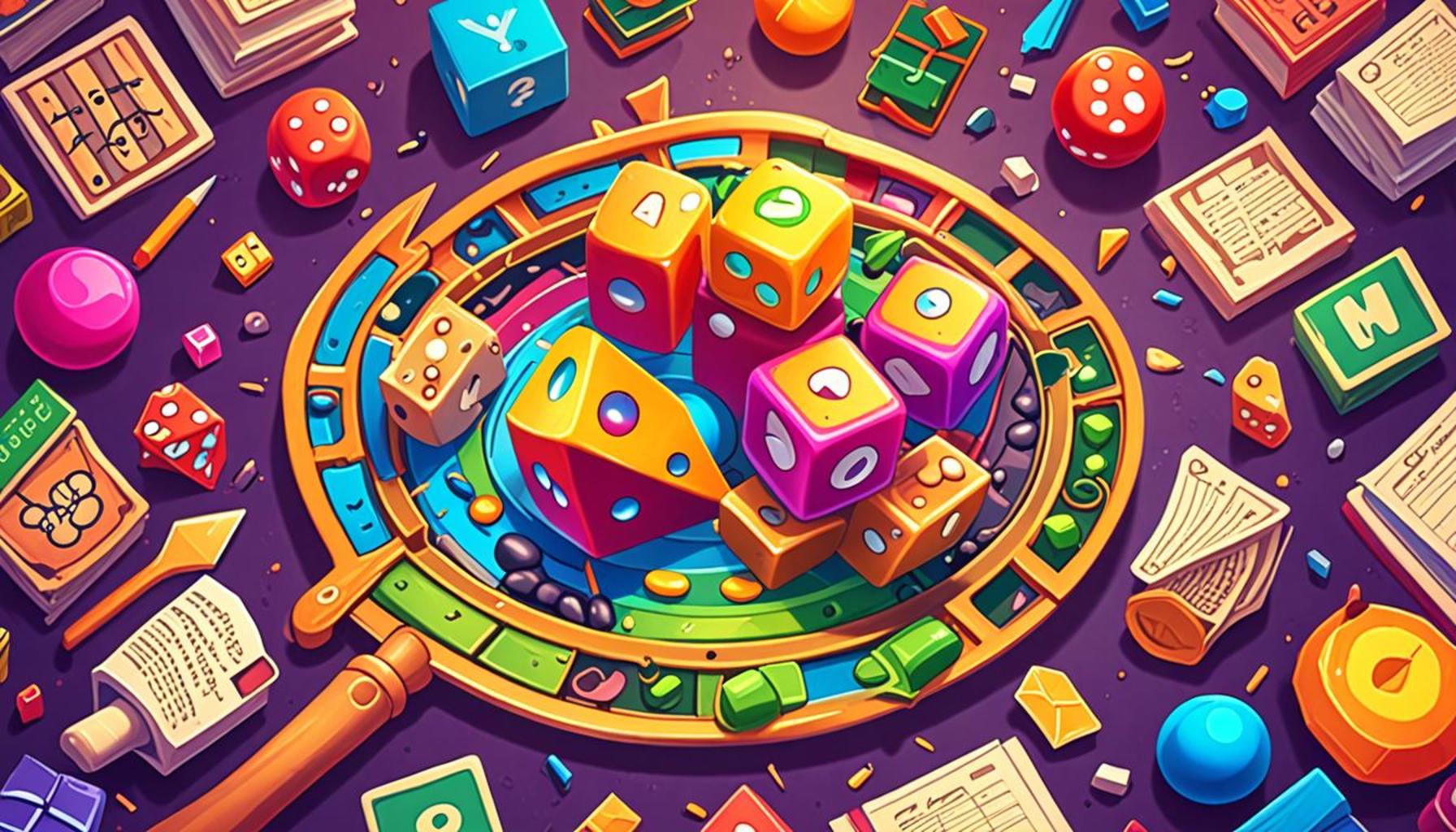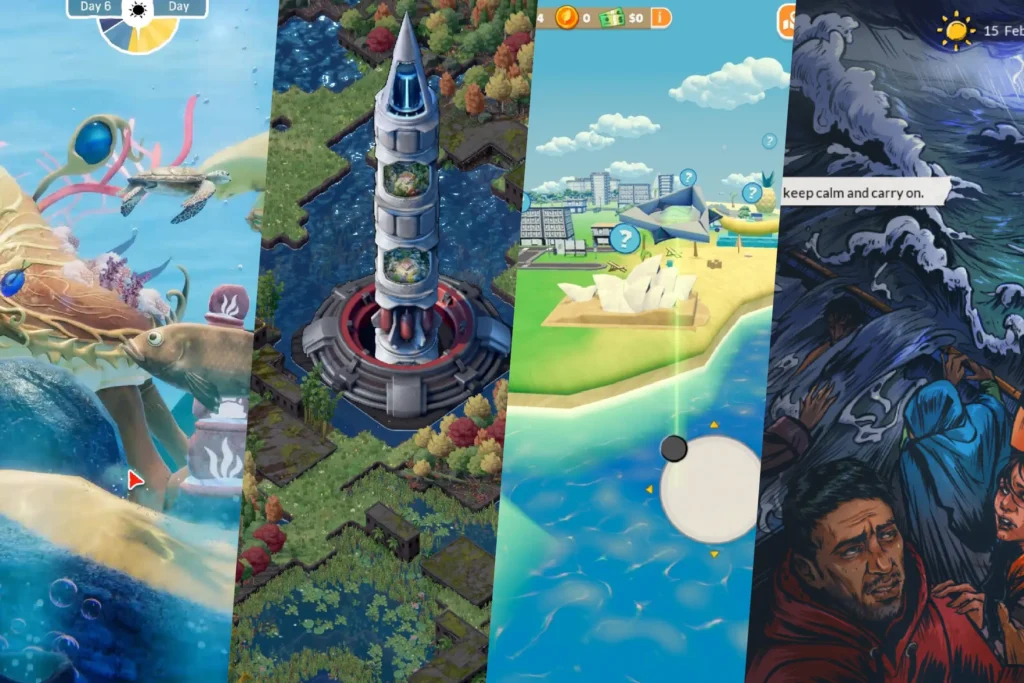Balancing Fun and Learning in Strategy Games Ultimate Guide

The Allure of Strategy Games
In a world constantly dominated by fast-paced action and instant gratification, strategy games offer a refreshing contrast. These games not only provide entertainment but also serve as arenas for honing various cognitive skills. By demanding careful planning, foresight, and tactical thinking, strategy games cultivate a mindset that values methodical decision-making over haphazard responses.
The Importance of Problem-Solving
Engaging in strategy games allows players to develop their problem-solving abilities significantly. For instance, titles like “Civilization V” require players to build empires through strategic planning and resource management. Players must evaluate their surroundings, anticipate opponents’ moves, and allocate their resources wisely to ensure survival and success. In this way, everyday players are unwittingly sharpening their skills in real-life scenarios, such as navigating complex work projects or personal challenges.
Enhancing Critical Thinking
Critical thinking is another vital component of effective strategy gaming. For example, games like “StarCraft II” engage players in fast-paced, high-stakes environments where they must make split-second decisions that can alter the course of the game. Players learn to assess risk, analyze situations from multiple angles, and weigh their options—all fundamental aspects of critical thinking that translates well beyond the screen. This ability to think critically is invaluable in an increasingly complex world.
Teamwork and Collaboration
Many modern strategy games emphasize the importance of teamwork and collaboration. Games like “League of Legends” and “Overwatch” require players to work in sync with teammates, fostering leadership qualities and enhancing communication skills. These multiplayer experiences highlight the significance of aligning individual goals with team objectives, a lesson that resonates in both personal and professional lives.
Finding the Right Balance
Determining the appropriate mix of entertainment and education can be a challenge. The burgeoning popularity of strategy games in educational settings reflects a growing recognition of their benefits. Schools across the United States are leveraging games not just as educational tools but as means to engage students in a fun way, enhancing their learning by integrating game-based elements in their curricula.


This guide aims to help readers navigate this vibrant landscape by:
- Identifying how to select games that blend fun and learning
- Examining innovative trends in the strategy gaming industry
- Recommending standout titles for various age groups, ensuring everyone finds something suited to their tastes and needs
Prepare to embark on an exploration of strategy games—where enriching your mental toolkit is as exhilarating as the thrill of victory. The journey to master this unique blend of fun and learning awaits, promising exciting discoveries at every turn.
CHECK OUT: Click here to explore more
Selecting the Right Strategy Games
As the worlds of gaming and education continue to converge, selecting the right strategy games becomes crucial for maximizing both fun and learning. The vast array of titles available might seem overwhelming, but understanding what to look for can simplify the process. Here are several key factors to consider when choosing a strategy game:
- Engagement Level: The game should captivate players from the start. Look for titles that offer immersive storylines, appealing graphics, and dynamic gameplay. For instance, games like “Total War: Three Kingdoms” present engaging narratives along with strategic depth, keeping players invested.
- Skill Progression: A good strategy game allows players to gradually enhance their skills. Games should incorporate tutorials or scaling difficulty levels to ensure new players feel challenged yet not overwhelmed. Achievements and rewards can further motivate players to improve, ensuring a sense of accomplishment along the way.
- Educational Value: Look for games that integrate educational concepts seamlessly into gameplay. Titles like “Kerbal Space Program” have players design and launch rockets, effectively teaching principles of physics and engineering in an entertaining context.
- Community Engagement: Multiplayer components foster community, making the experience more enjoyable. Games that encourage teamwork or friendly competition, such as “Dota 2,” can motivate players to engage further with peers, facilitating shared learning experiences.
- Replayability: Games that offer varied gameplay experiences keep players engaged over time. This may include multiple strategies or paths to victory, as seen in “XCOM: Enemy Unknown,” where decisions influence outcomes differently with every playthrough.
Innovative Trends in Strategy Gaming
The strategy gaming landscape is evolving rapidly, with innovative trends emerging to enhance the learning experience. One notable trend is the rise of educational institutions adopting game-based learning. Schools are increasingly using strategy games to develop critical thinking, collaboration, and problem-solving skills among students. Educational platforms such as “Classcraft” have successfully integrated game mechanics into classroom management, transforming traditional learning methods into more dynamic approaches.
Furthermore, many games now feature cross-platform play, allowing players on different devices to collaborate, thereby reaching a broader audience. This inclusivity brings individuals together to learn and strategize collaboratively, regardless of geographical boundaries. By making games accessible to more players, developers are paving the way for diverse perspectives and strategies, enriching the overall gaming experience.
As the integration of strategy games into educational contexts continues to develop, it is essential to remain aware of how these changes can enhance the balance between fun and learning. Investigating new trends helps you stay ahead of the curve and fully appreciate the ways in which these games can sharpen your skills while providing enjoyment.
| Advantage | Description |
|---|---|
| Enhanced Critical Thinking | Strategy games encourage players to analyze circumstances, predict outcomes, and make informed decisions. |
| Collaborative Skills | These games promote teamwork, allowing players to communicate and strategize effectively with others. |
| Adaptability | Players must adjust strategies based on dynamic scenarios and opponents’ moves, fostering flexibility. |
| Motivation to Learn | The game environment can spark interest in historical events, science mechanics, and mathematics through engaging gameplay. |
The interactive nature of strategy games allows for hands-on learning, where players get to experience the consequences of their decisions in real-time. This immersive approach not only keeps players engaged but also demonstrates that learning can be captivating when intertwined with fun. Moreover, these games often require understanding complex rules, which can enhance problem-solving skills as players navigate through challenges. Furthermore, the opportunity to participate in intense competitions can build resilience and give players a sense of achievement when they overcome obstacles, making strategy games a multifaceted tool for personal development. By engaging in such games, players can acquire a unique blend of entertainment and education that keeps them coming back for more, further fueling their desire to explore and master the art of strategy.
SEE ALSO: Click here to read another article
Leveraging Game Mechanics for Enhanced Learning
One of the most intriguing aspects of modern strategy games is their ability to employ sophisticated mechanics that promote both fun and learning. Game developers are increasingly drawing from educational psychology to create systems that not only entertain but also facilitate knowledge acquisition. Here are some key game mechanics that exemplify this balance:
- Feedback Loops: Effective strategy games often feature robust feedback mechanisms that guide players in real-time. For example, in “StarCraft II,” players receive instant feedback on their decision-making, allowing them to adapt their strategies based on outcomes. This immediate response fosters a learning environment where players quickly grasp the consequences of their actions.
- Simulations: Games that simulate real-world scenarios can be particularly beneficial for learning. “Civilization VI” challenges players to manage entire civilizations, teaching principles of governance, economy, and cultural development. Such games encourage players to think critically about historical contexts and explore cause-and-effect relationships within a simulated universe.
- Resource Management: Many strategy games require players to manage resources effectively, which can translate into valuable life skills. Titles like “Factorio” push players to optimize production chains while making strategic decisions about resource allocation. This complexity teaches time management, prioritization, and logistic planning, all essential skills in both academic and professional settings.
- Storytelling Elements: Narrative-driven gameplay can significantly enhance player engagement and retention of information. Games such as “Fire Emblem: Three Houses” integrate rich character development and plotlines, encouraging players to think about ethical implications, decision-making, and character motivations, which ultimately enhances emotional intelligence.
The Role of Competition in Learning
Competitive elements in strategy games can amplify both the fun and learning aspects of gameplay. While competition may evoke stress for some players, it can also drive engagement and motivation. Research suggests that competitive environments can foster a deeper understanding of game mechanics, as players strive to outmaneuver their opponents.
Games that incorporate leaderboards and ranking systems, such as “League of Legends,” not only cultivate a sense of accomplishment but also encourage peer learning. Players analyze each other’s strategies, leading to collaborative improvement and innovative approaches. Moreover, tournaments and community events can turn competitive play into learning opportunities, where players share resources and tips, enhancing collective knowledge.
Equally important is the role of sportsmanship in adaptive learning. When players experience both victories and defeats, they learn resilience and the importance of reflection. The ability to analyze one’s performance and adapt strategies accordingly is a critical skill that extends beyond the gaming realm into real-world problem-solving.
As strategy games continue to evolve and embrace innovative mechanics, developers are establishing a unique convergence of fun and learning. By recognizing how specific elements contribute to educational outcomes, players and educators alike can harness the power of gaming for personal growth and skill development. The ever-adaptive nature of these games creates an engaging environment where continuous learning is not just possible but inherently enjoyable.
SEE ALSO: Click here to read another article
Conclusion
In the ever-evolving landscape of strategy games, the balance between fun and learning is more pertinent than ever. As game developers harness advanced mechanics that draw from educational psychology, players benefit from immersive experiences that promote critical thinking, problem-solving, and collaboration. The integration of responsive feedback loops, realistic simulations, and engaging narratives within these games not only captivates players but also facilitates meaningful skill acquisition.
Furthermore, the competitive nature of many strategy games cultivates environments ripe for peer learning and self-reflection. Players are encouraged to analyze their playstyles and adapt in pursuit of victory, which fosters resilience and a growth mindset. Indeed, the lessons learned through both triumphs and setbacks transcend the gaming sphere, equipping individuals with essential life skills applicable in academic and professional realms.
As we observe this fascinating interplay of entertainment and education, it becomes evident that strategy games are not merely pastimes but valuable tools for personal development. With a wide array of titles catering to diverse interests, players are invited to embark on journeys where enjoyment and enlightenment coexist. For those navigating this vibrant genre, the challenge lies in selecting games that promote continuous engagement and skill enhancement. In doing so, players can unlock their full potential and reshape their understanding of learning through the lens of strategy gaming.
Related posts:
Boost Critical Thinking with Strategy Games A How-To Guide
Create Your Own Group Strategy Games A Step-by-Step Guide
Classic Strategy Games Examples and Rules for Timeless Gameplay
Boost Cognitive Skills Benefits of Strategy Games Explained
How Strategy Board Games Work Understanding the Mechanics
Advanced Strategy Tips for Experienced Strategy Gamers

Beatriz Johnson is a seasoned puzzle enthusiast and writer with a passion for unraveling the complexities of mind games and brain teasers. With over a decade of experience in the world of puzzles, she specializes in topics like logic games, riddles, and strategic challenges. Through her work, Beatriz empowers readers to sharpen their problem-solving skills, think creatively, and stay engaged in the ever-evolving landscape of mind games and puzzles.